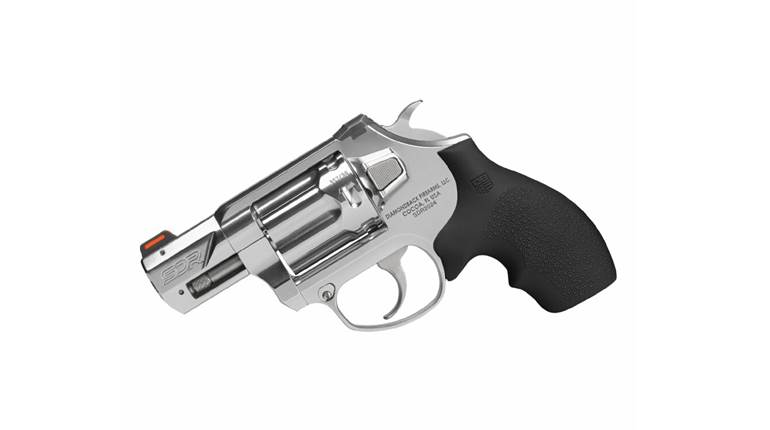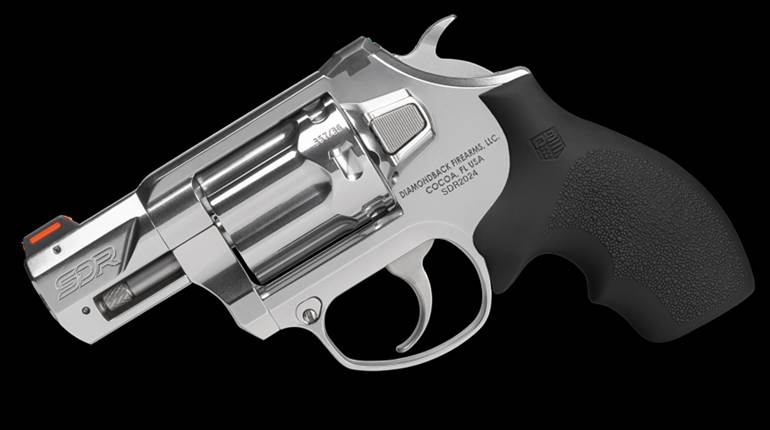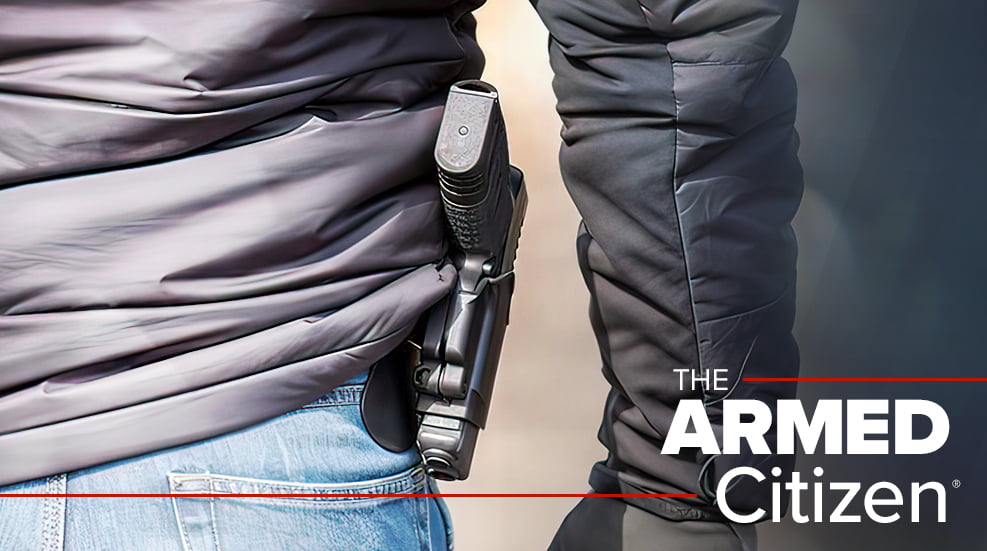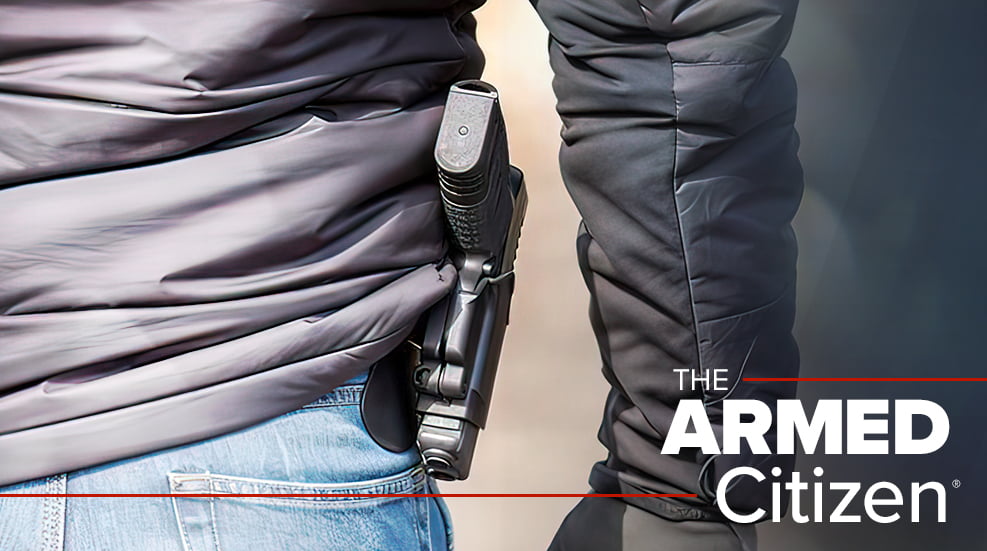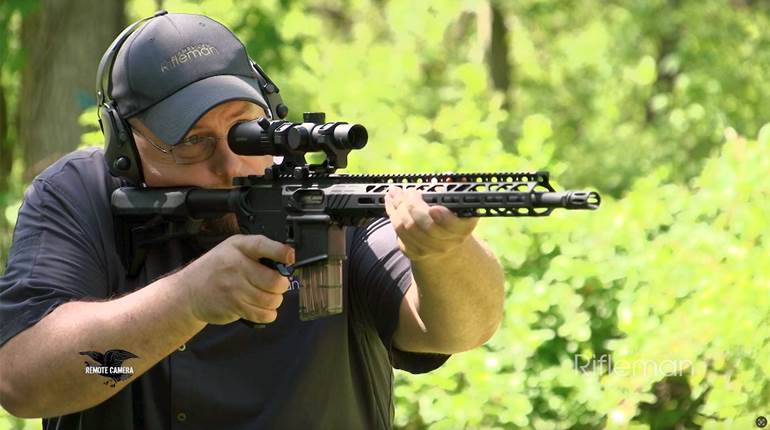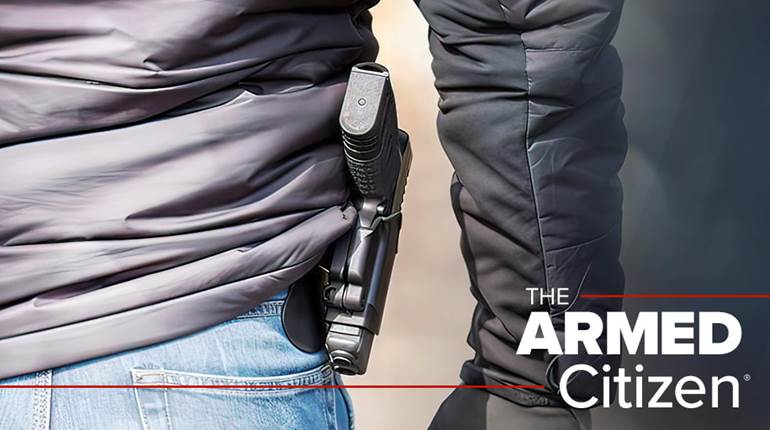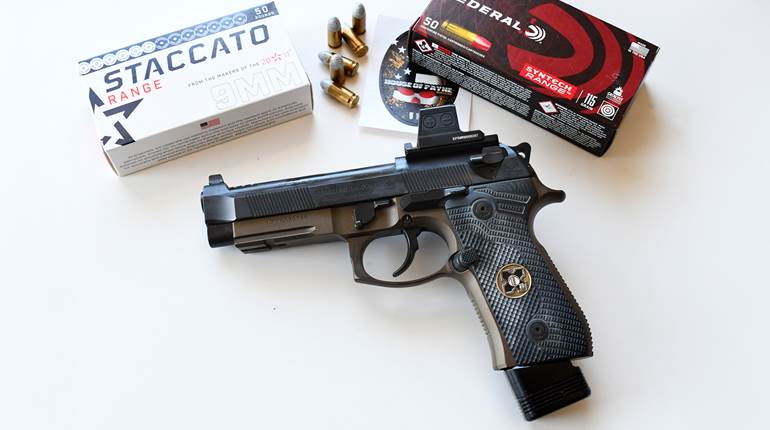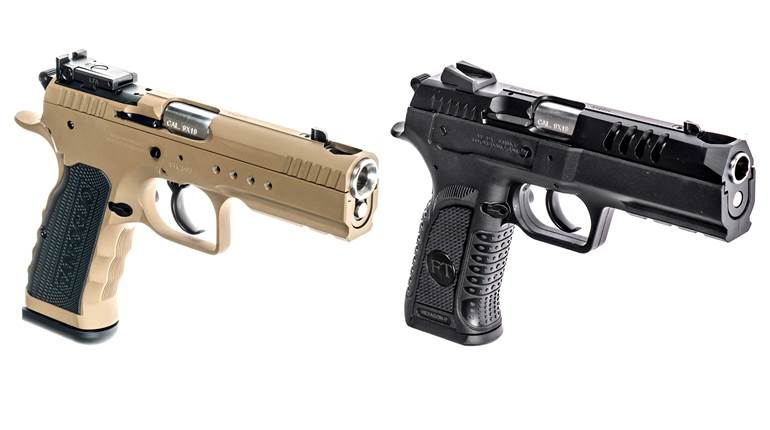
Located in Cocoa, Fla., Diamondback Firearms LLC made its way into the shooting market back in 2009 with a.380 ACP polymer pocket pistol called the DB380. It was soon followed by the DB9. Still in its infancy, Diamondback jumped into the competitive AR-15 market with the release of its DB15 series in 2012, and the timing couldn't have been better. At that time, the AR-15 style of rifle (or Modern Sporting Rifle if you prefer) was already securely anchored as one of the most popular rifles available. The recent political upheavals in relation to 2nd Amendment rights have caused these rifles to fly out the doors of gun dealers with even greater haste.
In becoming an AR-15 manufacturing company, Diamondback decided to launch its DB15 rifle series using the U.S. Military's tried and tested gas-impingement system. Diamondback also chose to deliver a product made entirely in the United States, using components machined in its CNC facility. The model used in this evaluation is the DB15B, with B indicating that the rifle sports a matte-black finish from head to toe. Other finish options include tan, camouflage and a nickel-boron.
Chambered in 5.56 NATO/.223 Rem., the rifles feature a 16-inch 4140 chrome-moly steel barrel with a 1 in 9-inch twist rate. The free-floated barrel is threaded to accept muzzle accessories and arrives with an A2 flash hider installed. The upper and lower receivers are constructed of forged 7075 T6 aluminum, with the upper being of the A3 flat-top variety. The upper receiver's Picatinny rail meshes neatly with the milled in full-length top rail of Diamondback’s proprietary 8.75-inch aluminum one-piece hand guard, which extends over the gas block. The other three integral rails of the quad-rail accessory system are 2.25-inches long and located at the muzzle end of the hand guard.
The MilSpec 8620 bolt carrier is shot-peened and subjected to a magnetic particle inspection (MPI). A commercial-grade stock tube supports a six-position collapsible stock. Both the polymer stock and the A2-style pistol grip on this rifle are supplied by TAPCO with additional stock options available. The DB15B’s controls present no surprises. The magazine release, bolt release and charging handle are all standard AR-15 fare, shaped and located in the normal positions. This rifle arrived with one aluminum 30-round magazine.
At the shooting range, the DB15B nicely demonstrated the handling characteristics that make AR-15 carbines a popular shooting option. It successfully fed, fired and ejected test ammunition flawlessly using the provided magazine and some of Brownell’s aluminum after-market magazines. The trigger gauged at 7 pounds, 1 ounce, which is dead center of the typical factory 6 to 8-pound trigger pull weight. The curved, smooth-faced trigger was as comfortable to work with as a factory trigger can be.
The aluminum handguard is a little heavier than some, but once the rifle was shouldered it was not too noticeable. Diamondback deserves a pat on the back for not covering every single square inch of the hand guard with Picatinny railing. Instead, the company wisely limited the length of three lower rails. They're just long enough to add some gadgets while leaving plenty of smooth, hand-friendly space for holding the rifle with the support hand. It’s comfortable and functional instead of "Tacticool."
Two sighting options were tested with the DB15B, as the rifle comes without sights. For iron sights, the rifle was fitted with flip-up battle sights from XS Sight Systems. Teaming up with Troy Industries, which provides the Picatinny sight bases, the rear sight was fitted with the XS CSAT aperture. Designed by Paul Howe, the top of the CSAT rear sight is squared off and cut with a square notch, like a pistol sight, for engaging targets at close range. Below the square notch is the traditional small aperture for shooting out to 100 yards. The rear sight can be flipped to a large aperture as well. The front sight was topped with XS Sight's new 24/7 Tritium Stripe sight. It’s a .100-inch wide square-top post with a white stripe for daylight and half-light sight acquisition, and a Trijicon tritium lamp for low-light situations. During informal accuracy testing, this XS sight configuration proved to be accurate and easy to use. It only took a little practice to transition from close to distant targets using the CSAT aperture.
For formal accuracy testing, the XS sights were folded down and a Leupold VX-R Patrol 1.25-4x20 mm FireDot Special Purpose Reticle (SPR) scope was attached using a Mark 2 IMS scope mount. The VX-R features a fixed crosshair with a red dot at the center that can be adjusted for brightness. The combination of the fixed cross hair, the red dot and the adjustable magnification allows this scope to support most of the applications for which a combat carbine like the DB15B would be employed, including close-range defense and extended-range competition and target shooting. The quick-release base makes it easy to remove the scope if needed and keeps the zero when the scope is re-installed. Shooting five consecutive, five-shot groups from a bench rest at 100 yards, groups ranged from 1.5 inches to 2.25 inches in size. As expected, recoil was mild with all loads tested.
The fit and finish of the DB15B is top notch with all of the components coated properly. The tolerances are what you would expect to see from a new gun, with all of the controls running smoothly and the Picatinny rails cut properly to provide a secure fit for sights and accessories. The Diamondback handguard hits the mark in both the comfort and practical application departments. The DB15 arrives ready to shoot, once you have your preferred sight system in place. The Diamondback DB15B demonstrates all of the positive qualities most folks are looking for in a reasonably priced AR-15.
Manufacturer: Diamondback Firearms LLC; diamondbackfirearms.com
Model: DB15B (AR-15 Rifle)
Action: Gas-impingement semi-auto
Caliber: 5.56 NATO/.223 Remington
Finish: Black Anodized hardcoat
Barrel: 16-inches, 4140 chrome-moly, M4 contour, free floated
Bolt Carrier: Shot-peened, magnetic particle inspected MilSpec 8620
Lower Receiver: Forged 7075 T6 aluminum
Upper Receiver: A3 flattop forged 7075 T6 aluminum, T-Marked
Handguard: Diamondback aluminum modified four rail
Pistol Grip: Tapco A2 style
Stock: Tapco six-position collapsible stock
Overall Length: Collapsed 32.5”; expanded 36.25”
Sights: None
Weight: 6.65 lbs.
Capacity: 30+1 rounds
Twist: 1:9” RH
Accessories: One magazine, lock, owner’s manual
Suggested Retail Price: $958














